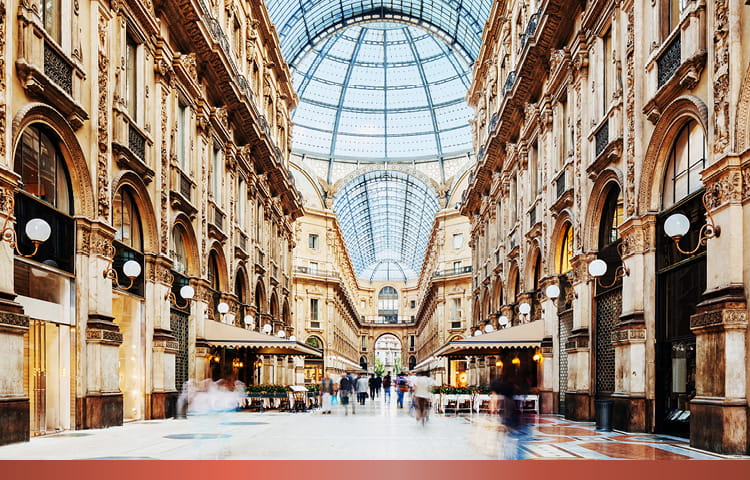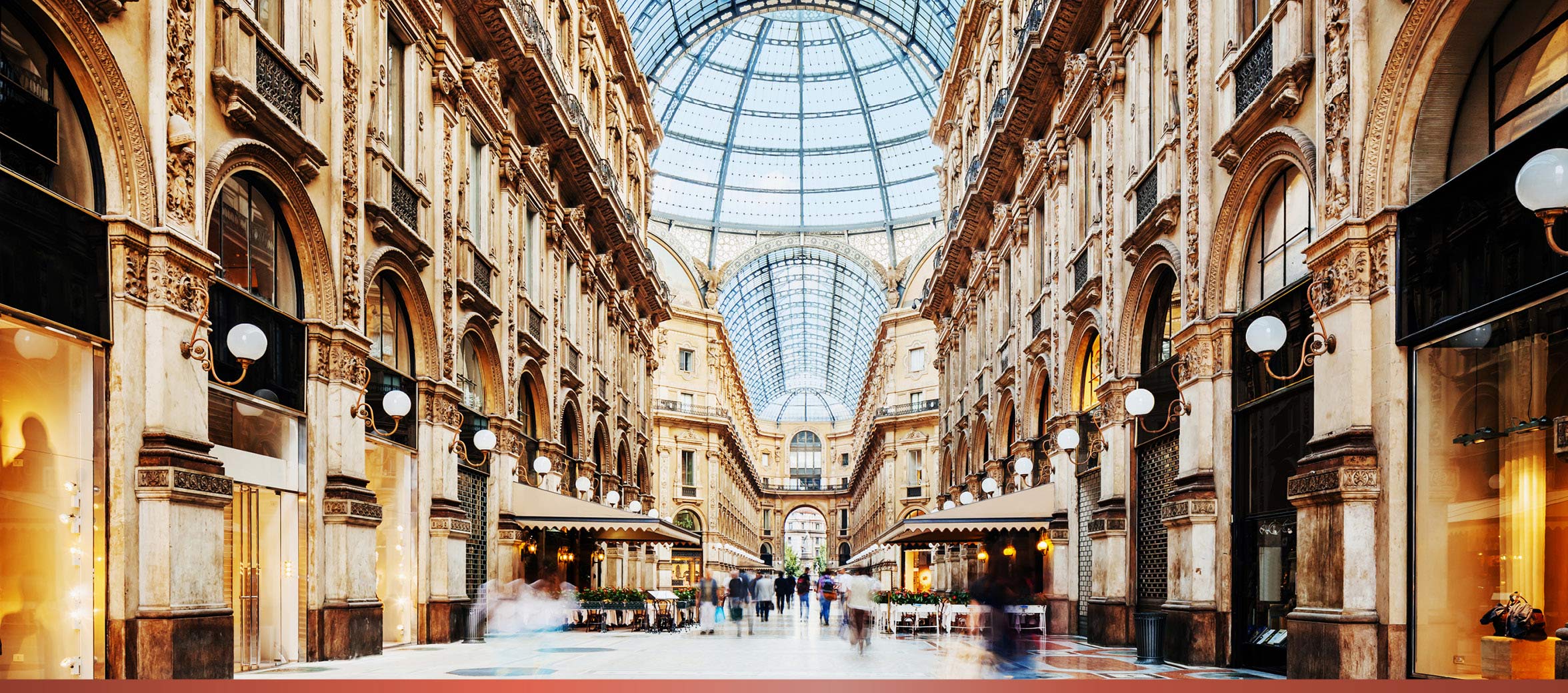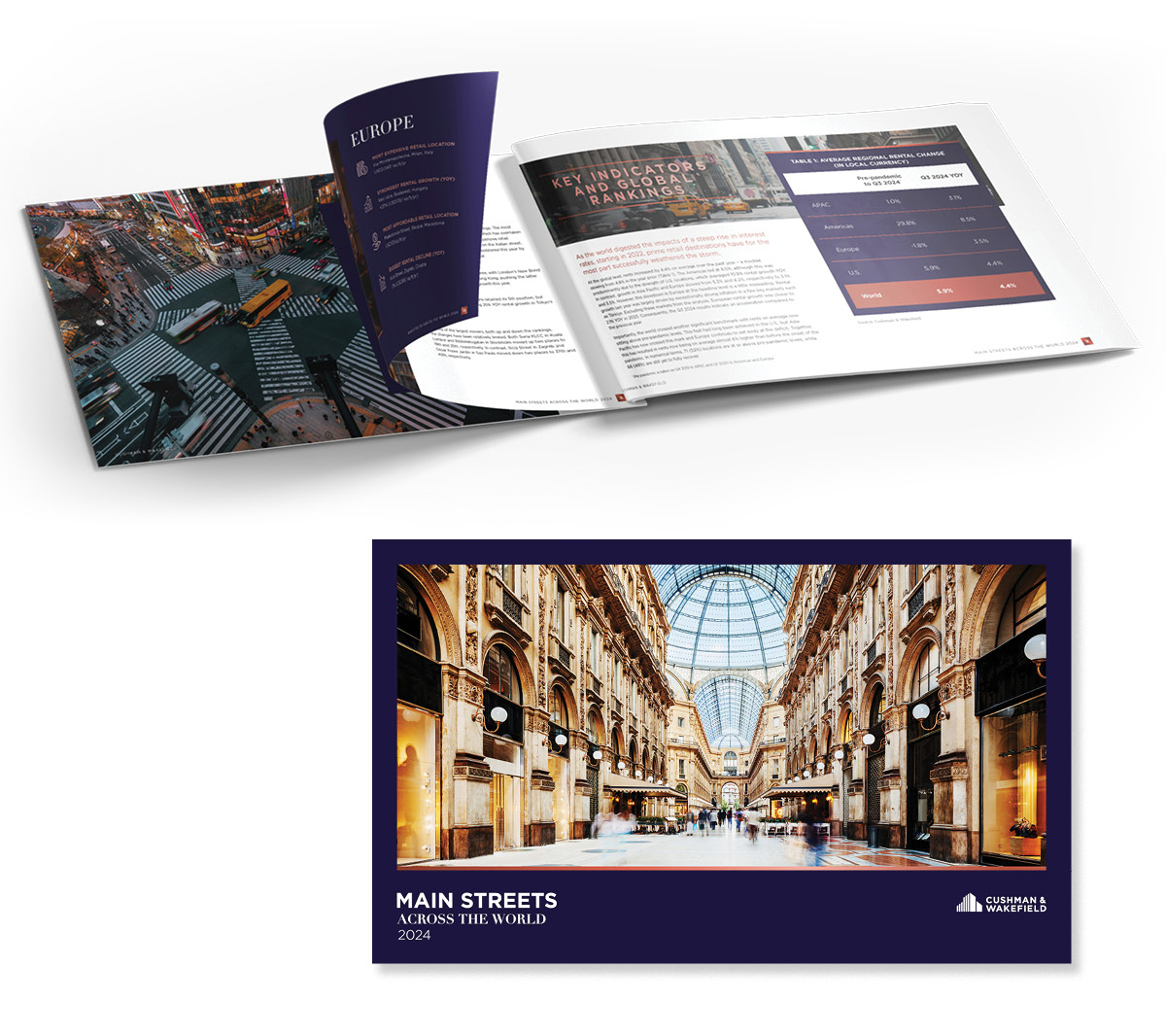

GROWTH TRENDS
Global Rental Growth Trends
While rental growth varies significantly across the globe, report data indicates that over half of the 138 locations tracked saw YOY rental growth. Competitive tension between retailers and limited space has heightened demand for retail space on key streets, driving up rental prices.
Rental growth has been particularly robust in the U.S., which experienced a YOY increase of almost 11%. This marks a significant uptick from previous years and highlights the strength of the American market in the global retail landscape. In contrast, Europe and Asia Pacific saw slower rent growth, experiencing increases of 3.5% and 3.1%, respectively.
RANKINGS
Iconic Main Streets and Their Rankings
The rankings of the world’s most iconic main streets have changed significantly since the 2023 ranking. Milan’s Via Montenapoleone has now surpassed New York’s Fifth Avenue to become the world’s most expensive retail destination, with average rents reaching $2,047 per square foot per year to Fifth Avenue’s $2,000, which has remained unchanged since 2022. This shift is attributed to strong rental growth over the past two years and the euro’s appreciation against the U.S. dollar this year.
London’s New Bond Street, with a rental value of $1,762 per square foot per year, has also climbed the ranks and surpassed Hong Kong’s Tsim Sha Tsui, where rental values measure at $1,607 per square foot per year.
The Avenue des Champs-Élysées in Paris has managed to retain its fifth position, though the gap to sixth narrowed following strong growth of 25% YOY in Tokyo’s Ginza district.
In the Asia-Pacific retail landscape, Khan Market in New Delhi, India, stands at twenty third position in 2024, a jump of one place over last year, among the region's most expensive high streets, surpassing notable locations such as Bangkok’s Central Retail District, Jakarta’s Prime Main Street, and Bonifacio in Manila. This rise reinforces Khan Market to be a premium destination, with annual rents reaching USD 229 per square foot.
Delhi-NCR now boasts India’s top three most expensive retail high streets. Alongside Khan Market, Connaught Place (Delhi) and Galleria Market (Gurgaon) are also prominent, with annual rentals of USD 158 (INR 13,335) and USD 156 (INR 13,166) per square foot, respectively. The limited availability of space has intensified competition in these areas, driving up costs for brands seeking prime retail locations.
Indiranagar 100 Feet Road in Bengaluru recorded the highest year-over-year rental growth at 32%, reaching USD 47 per square foot annually. In contrast, Chennai’s Anna Nagar and Pondy Bazaar remain among the region’s most affordable high streets, with rentals ranging from USD 25 to 26 per square foot annually.
See the trends shaping these changes and see the complete analysis.
ECONOMIC IMPACT
The Impact of Changing Economic Conditions
Changing economic conditions, which recently have centered around inflation and interest rates, have far-reaching effects on main streets. Retailers must adapt to these conditions to maintain their competitive edge. High interest rates and high inflation have created a cost-of-living crunch, generally dampening consumer and business confidence. As interest rate cuts have come, we have first seen ongoing improvements in business confidence, with consumer sentiment starting to follow. Further interest rate cuts are expected to provide further economic stimulus.
BRICK AND MORTAR
Physical Presence in Partnership with Digital
The continued strength of main streets lies in the power of physical presence. Retailers recognize the value of high-quality locations, which serve as compelling brand expressions. Places like these Physical stores offer a tactile experience that digital platforms cannot replicate. They create a connection between the brand and the customer, enhancing loyalty and engagement. Digital channels, nonetheless, play an integral role and so retailers continue to trend toward integrating digital experience both within and beyond brick-and-mortar locations, rather than fully replacing one with the other. This partnership between physical and digital realms is integral to curating thriving experiences on main streets.
Super-prime retail streets, often dominated by luxury brands, are now attracting diverse sectors such as sports, cosmetics, and wellness.
FUTURE OF GLOBAL MAIN STREETS
The Impact of Changing Economic Conditions
Changing economic conditions, which recently have centered around inflation and interest rates, have far-reaching effects on main streets. Retailers must adapt to these conditions to maintain their competitive edge. High interest rates and high inflation have created a cost-of-living crunch, generally dampening consumer and business confidence. As interest rate cuts have come, we have first seen ongoing improvements in business confidence, with consumer sentiment starting to follow. Further interest rate cuts are expected to provide further economic stimulus.
Our Approach: How We Ranked Main Streets Across the World
Main Streets Across the World provides insights into headline rents across 138 cities, tracking year-over-year (YOY) changes while accounting for foreign exchange rates and local metrics The global ranking includes one street per market (country), while regional rankings share unfiltered headline rent prices per square foot for all tracked cities within each region (APAC, EMEA and the Americas).
For a deeper understanding of these dynamics and to explore the comprehensive data analysis, download the Main Streets Across the World report today. Gain invaluable insights into how main streets are evolving and what strategies can be employed for future growth and success.
| EXPLORE THE FULL REPORT |


